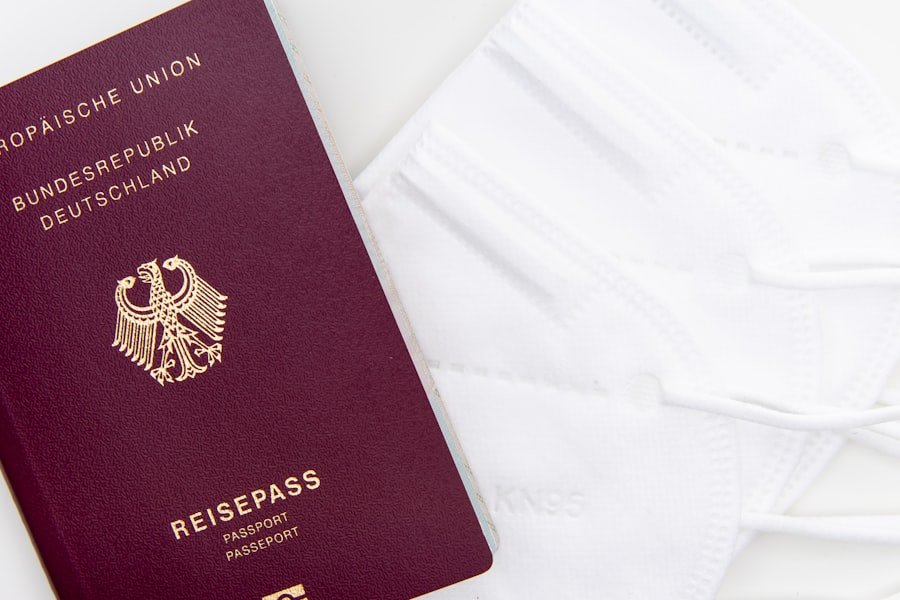The Schengen Visa is a crucial document for travelers wishing to explore Switzerland, a country renowned for its stunning landscapes, rich culture, and vibrant cities. As a member of the Schengen Area, Switzerland allows visitors from various countries to enter without the need for multiple visas, provided they hold a valid Schengen Visa. This visa not only facilitates travel within Switzerland but also permits entry into other Schengen countries, making it an attractive option for those planning to explore Europe extensively.
The Schengen Visa is typically issued for short stays of up to 90 days within a 180-day period, catering to tourists, business travelers, and individuals visiting family or friends. Applying for a Schengen Visa to Switzerland involves a series of steps and requirements that must be meticulously followed. The process can be daunting for first-time applicants, as it requires careful preparation of documents and adherence to specific guidelines set by the Swiss authorities.
Understanding the nuances of the application process is essential for ensuring a smooth experience and increasing the likelihood of visa approval. This article will delve into the various components of the application process, providing detailed insights into each requirement and offering practical tips for prospective travelers.
Key Takeaways
- Schengen Visa is required for traveling to Switzerland for tourism, business, or visiting friends and family.
- Passport and visa application form must be submitted along with the visa application.
- Proof of accommodation such as hotel reservations or invitation letter from a host in Switzerland is required.
- A detailed travel itinerary including flight reservations and planned activities in Switzerland is necessary.
- Proof of sufficient financial means to cover the expenses during the stay in Switzerland is mandatory.
Passport and Visa Application Form
The first step in applying for a Schengen Visa to Switzerland is ensuring that your passport meets the necessary criteria. Your passport must be valid for at least three months beyond your intended departure date from the Schengen Area and should have been issued within the last ten years. Additionally, it must contain at least two blank pages for visa stamps.
It is advisable to check the passport’s validity well in advance of your travel plans to avoid any last-minute complications. Alongside your passport, you will need to complete a visa application form. This form can typically be downloaded from the official Swiss consulate or embassy website or obtained in person at the consulate.
The application form requires personal information such as your name, nationality, date of birth, and details about your travel plans. It is crucial to fill out this form accurately and truthfully, as any discrepancies can lead to delays or even rejection of your application. Once completed, the form must be signed and dated before submission.
Proof of Accommodation

One of the essential requirements for obtaining a Schengen Visa is providing proof of accommodation during your stay in Switzerland. This documentation serves to assure the authorities that you have a place to stay and that you will not become a burden on public resources. Acceptable forms of proof include hotel reservations, rental agreements, or an invitation letter from a host if you plan to stay with friends or family.
When submitting hotel reservations, it is important that they are confirmed and include your name, the dates of your stay, and the address of the accommodation. If you are staying with friends or family, an invitation letter should detail your relationship with the host, the duration of your stay, and their willingness to accommodate you. Additionally, including a copy of your host’s identification can further strengthen your application by providing additional verification of your accommodation arrangements.
Travel Itinerary
| Date | Location | Activity |
|---|---|---|
| June 1 | New York | Arrival, check-in at hotel |
| June 2 | New York | Visit Statue of Liberty |
| June 3 | Washington D.C. | Explore National Mall |
| June 4 | Washington D.C. | Visit Smithsonian Museums |
| June 5 | Orlando | Disney World |
A well-structured travel itinerary is another critical component of your Schengen Visa application. This document outlines your planned activities during your stay in Switzerland and demonstrates that you have a clear purpose for your visit. A comprehensive itinerary should include details such as flight bookings, transportation arrangements within Switzerland, and a list of places you intend to visit.
When creating your travel itinerary, it is beneficial to include specific dates and times for each activity, as well as any pre-booked tours or events. This level of detail not only showcases your planning skills but also reassures visa officials that you have a genuine intention to visit Switzerland for tourism or business purposes. Additionally, if you plan to travel to other Schengen countries during your trip, be sure to include those destinations in your itinerary as well.
Proof of Financial Means
Demonstrating sufficient financial means is a vital aspect of the Schengen Visa application process. Swiss authorities require proof that you can support yourself financially during your stay without relying on public funds. This requirement aims to ensure that visitors can cover their accommodation, meals, transportation, and any other expenses incurred while in Switzerland.
Acceptable forms of proof include bank statements from the last three months, pay slips from your employer, or sponsorship letters if someone else is covering your expenses. Bank statements should clearly show your name and account balance, indicating that you have enough funds available for your trip. It is generally recommended to have at least CHF 100 per day for your stay in Switzerland; however, this amount may vary based on individual circumstances and travel plans.
Travel Insurance

Minimum Coverage Requirements
The insurance policy must cover medical expenses up to at least €30,000 (approximately CHF 32,000) and provide coverage for emergency medical treatment, hospitalization, and repatriation in case of serious illness or injury. This requirement underscores the importance of being prepared for unforeseen circumstances while traveling.
Choosing the Right Policy
When purchasing travel insurance, ensure that it meets all Schengen requirements and includes coverage for all Schengen countries during your trip. It is advisable to obtain a policy that covers not only medical emergencies but also trip cancellations or interruptions, lost luggage, and personal liability.
Proof of Insurance Coverage
Upon applying for your visa, you will need to submit proof of insurance coverage in the form of a policy document or certificate that clearly outlines the terms and conditions.
Proof of Employment or Education
Providing proof of employment or education is another critical element in the Schengen Visa application process. This documentation serves as evidence of your ties to your home country and indicates that you have reasons to return after your visit to Switzerland. For employed individuals, this typically involves submitting a letter from your employer confirming your position, salary, and duration of employment.
If you are a student or currently enrolled in an educational institution, you will need to provide proof of enrollment along with a letter from your school or university confirming your status as a student. This documentation should include details such as the course you are studying and its duration. By demonstrating stable employment or educational commitments in your home country, you strengthen your application by showing that you have significant reasons to return after your trip.
No Objection Letter (if applicable)
In certain cases, applicants may need to provide a No Objection Letter as part of their visa application package. This letter is particularly relevant for individuals traveling on behalf of their employer or those who are minors traveling without their parents or guardians. A No Objection Letter from an employer indicates that they are aware of and approve the employee’s travel plans.
For minors traveling alone or with someone other than their parents, obtaining a No Objection Letter from both parents or legal guardians is essential. This letter should state their consent for the minor’s travel and include details about the trip’s purpose and duration. Including this document can help clarify any potential concerns regarding custody or parental consent during the visa application process.
Additional Supporting Documents
In addition to the primary documents required for a Schengen Visa application, there may be additional supporting documents that can enhance your application’s credibility. These documents can vary based on individual circumstances but may include items such as previous visas (if applicable), proof of ties to your home country (like property ownership), or evidence of previous travel history. For instance, if you have traveled to other Schengen countries before and returned home without overstaying your visa, including copies of those visas can demonstrate compliance with immigration regulations.
Similarly, if you own property or have family ties in your home country, providing documentation such as property deeds or family certificates can further establish your intent to return after visiting Switzerland.
Visa Fee Payment Receipt
The final step in preparing your Schengen Visa application involves paying the visa fee and obtaining a payment receipt as proof of payment. The fee varies depending on factors such as age and type of visa being applied for but generally falls within a range set by the Swiss authorities. It is important to check the current fee structure on the official Swiss consulate website before making payment.
Once you have paid the fee—typically through bank transfer or at designated payment centers—ensure that you keep the receipt safe as it must be submitted along with your application documents. Failure to provide this receipt may result in delays or rejection of your visa application.
Conclusion and Tips for a Successful Visa Application
Navigating the Schengen Visa application process can be complex; however, thorough preparation can significantly enhance your chances of success. Start by gathering all required documents well in advance and ensure they meet the specific criteria outlined by Swiss authorities. Double-checking each document for accuracy and completeness can prevent unnecessary delays.
Additionally, consider scheduling an appointment at the Swiss consulate early in the process to avoid long waiting times. Arriving prepared with all necessary documentation will not only streamline your appointment but also demonstrate professionalism and seriousness about your travel plans. Finally, remain patient throughout the process; visa applications can take time for processing due to various factors such as demand and administrative procedures.
By following these guidelines and being diligent in preparing your application package, you can approach the visa application process with confidence and increase your chances of receiving approval for your journey to Switzerland.
If you are planning a trip to Switzerland and need to apply for a Schengen visa, it is important to have all the necessary documents in order. One related article that may be helpful is Exploring the Delightful World of Asian Melon. This article discusses the unique and delicious flavors of Asian melons, which you may encounter during your travels in Switzerland. Understanding the local cuisine and culture can enhance your overall travel experience.
FAQs
What is a Schengen visa for Switzerland?
A Schengen visa for Switzerland is a travel document that allows non-EU citizens to enter and travel within the Schengen Area, which includes Switzerland, for a short period of time.
What documents are required for a Schengen visa for Switzerland?
The required documents for a Schengen visa for Switzerland typically include a completed visa application form, a valid passport, passport-sized photos, travel itinerary, proof of accommodation, travel insurance, proof of financial means, and any additional documents depending on the purpose of the visit.
How long does it take to process a Schengen visa for Switzerland?
The processing time for a Schengen visa for Switzerland can vary, but it usually takes around 15 days from the date of the application. However, it is recommended to apply well in advance of the planned travel date to account for any potential delays.
What is the validity of a Schengen visa for Switzerland?
The validity of a Schengen visa for Switzerland can vary depending on the type of visa and the purpose of the visit. It can range from a few days to several months, with the possibility of single or multiple entries.
Can I work in Switzerland with a Schengen visa?
No, a Schengen visa for Switzerland does not allow the holder to work in the country. If the purpose of the visit is for work, a separate work visa or permit is required.
Can I extend my Schengen visa for Switzerland?
In general, Schengen visas for Switzerland cannot be extended. If the traveler needs to stay longer than the visa allows, they must apply for a different type of visa or permit.

